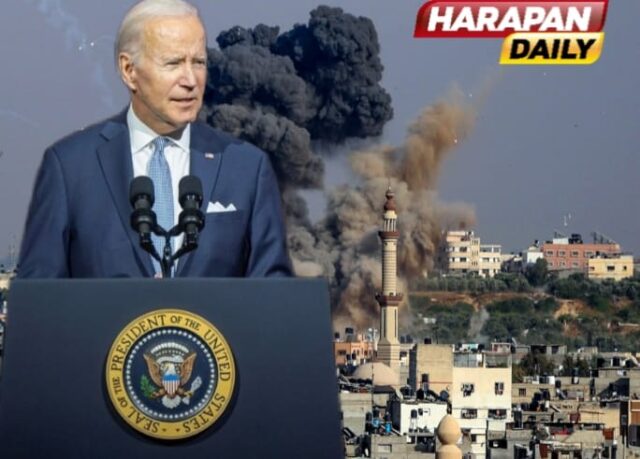Key Factors Shaping US Foreign Policy in the Middle East
BY: KHALDOON ABDULLA
The foreign policy of the United States (US) towards the Middle East involves a complex mix of strategic and ideological factors.
On one level, US policy is shaped by traditional geopolitical considerations, including the pursuit of hegemony through control of strategic passages, the promotion of the liberal international order, and the containment of regional powers.
However, Zionist ideology significantly influences US policy in the region, often leading to actions that prioritize Israel’s interests over broader American strategic objectives.
The tension between strategic interests and ideological commitments has produced a contradictory approach by the US towards the region. While the US officially advocates for de-escalation, its sustained and unprecedented support for Israel acts to undermine these diplomatic efforts.
US’ strategic interests in the Middle East align with the need to de-escalate regional conflicts. The ongoing war in the area distracts American attention from other critical regions where rivals like Russia and China are increasing their influence.
Moreover, the Israeli attacks on civilians have eroded the legitimacy of the liberal international order that the US champions as a key foundation of its global power.
These challenges are worsened by a fragmented domestic climate in the United States, marked by ineffective leadership, divided political factions, and a populace disillusioned with incompetent presidential candidates, compounding the issue.
Nonetheless, US politicians committed to Zionism, including Biden and Blinken, have maintained their strong support for Israel. They even misinterpret biblical passages to justify Israel’s actions, mirroring rhetoric used by extremist groups.
This contradictory and inconsistent approach to the Middle East has created a sense of impotence in US foreign policy, which Israel is exploiting to further its regional agenda.
In the event of a major regional conflict, the United States will feel compelled to support its ally, Israel, from the beginning.
This commitment contradicts its traditional strategy of offshore balancing and ultimately reduces its ability to influence the outcomes of the conflict, especially when compared to its strategies during World War I and World War II.
Khaldoon Abdulla is a senior research fellow at Asia Middle East Center for Research Dialogue

